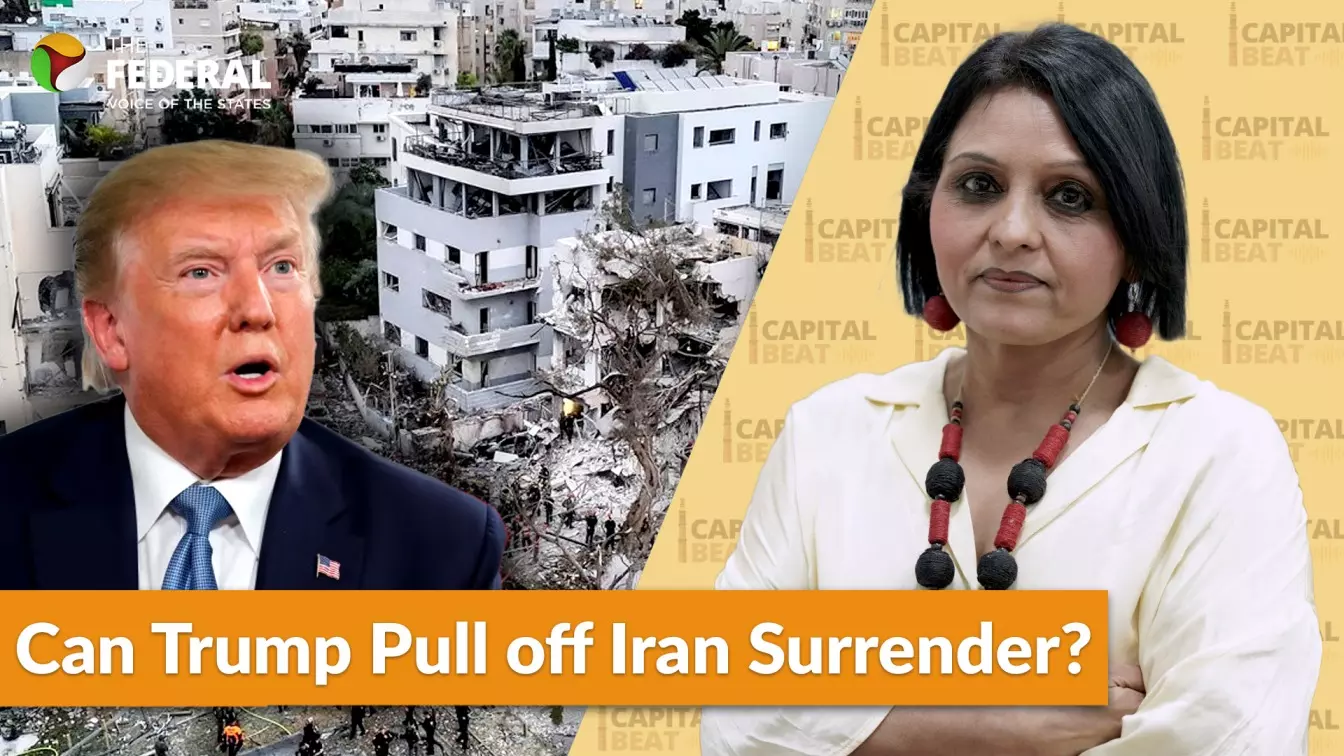
Iran-Israel conflict | 'It's delusional to expect Iran to kneel' I Discussion
Israel-Iran airstrikes intensify amid Trump’s provocative threats. Is unconditional surrender the next move, or will Iran escalate?

In this episode of Capital Beat, senior journalists and international affairs experts KS Dakshina Murthy, Sanjay Kapoor, and Dr. Aftab Kamal Pasha break down the intensifying conflict between Israel and Iran. With hypersonic missiles, rising casualties, and US President Donald Trump’s ultimatum to Tehran, the panel explores how close the world is to a wider war and whether backdoor diplomacy could still win the day.
Limited escalation or turning point?
Dr. Pasha called the current military exchanges a “limited escalation”, highlighting that while Israel’s initial shock-and-awe campaign involved over 200 fighter jets, the strikes have since become more pinpointed. Despite heavy bombardment, Iran’s nuclear facilities — buried deep underground — remain largely undamaged, he said.
Also read: Will Trump broker Iran-Israel peace? What's India's stand
He added that Iran had prepared decoy military and radar sites in anticipation of an Israeli attack. Civilian casualties in Iran, however, have been high, and hospitals are overwhelmed. Yet Iran’s response, using missiles rather than air strikes, has been strategic and restrained, targeting military and strategic Israeli sites.
Israeli vulnerability exposed?
Iran’s strikes, Dr. Pasha pointed out, successfully hit the Mossad headquarters, Haifa refinery, and even the Leviathan gas platforms in the Mediterranean. This, he said, shattered the myth of Israel’s invincibility and revealed weaknesses in its multi-layered air defence systems, even with US support.
Also read: Why closure of Strait of Hormuz could double crude oil prices in India
Iran’s missile precision, despite significant interceptions by Israeli and allied systems, demonstrated that Israeli targets could still be reached, albeit at great cost. According to him, Israel faces internal disruptions — blackouts, fuel shortages, and a fearful population — while Iranian cities continue to function with relative normalcy.
Trump's tough talk and Iranian defiance
Trump’s call for Iran’s “unconditional surrender” drew skepticism from Kapoor. “It’s delusional to expect Iran to kneel,” he said, pointing out that Iranians, despite their issues with the clergy, remain deeply nationalist and resilient.
Also read: Trump, Netanyahu acting in tandem to subdue Iran?
Kapoor suggested that while the situation could worsen if US or Israeli boots land in Iran, Trump may ultimately return to the negotiating table to preserve his legacy as a peacemaker. He also noted that a dangerous escalation could see Israel demanding more aggressive support from Washington, including the use of bunker-buster bombs.
US enters 'phase three'?
Murthy described the current stage as “phase three” of a planned escalation: phase one being failed negotiations, phase two the Israeli strike, and phase three involving direct US involvement. He emphasised that satellite images showing US naval movements near Bahrain suggested preparation for direct intervention.
According to Murthy, this is an intensification of earlier US-Israeli arm-twisting tactics, now moving into military confrontation. If Iran holds out through this phase too, the US may have no choice but to engage directly, which could change the balance of power in the region.
Backchannel diplomacy
Despite inflammatory rhetoric, Dr. Pasha hinted at ongoing backchannel diplomacy. Russia is pressuring Iran to resume talks in Oman, and Iran may agree to restrain its allied militias and halt attacks on US assets in the Gulf, in return for a ceasefire.
Trump, Dr. Pasha noted, might use this pause to pivot back to negotiations — mirroring his past behaviour in trade and foreign policy disputes. Iran, he said, is signaling willingness to compromise on key points, including missile targeting and regional stability assurances.
Push for regime change?
Kapoor flagged the re-emergence of Iran’s exiled monarchy as a possible tool in a US-Israeli plan for regime change. While acknowledging the regional support Iran enjoys from Russia and China, he warned that continued escalation could lead to efforts to install a puppet regime, if war spirals beyond control.
He maintained, however, that any such regime-change operation would face major hurdles given Iran’s internal strength and its people’s wariness of Western interference.
Will Iran blink?
Murthy concluded that while Iran may tactically pause to avoid further escalation, it would never surrender its long-term strategic objectives, especially its nuclear programme. Any retreat, he said, would be temporary. “Iran is no pushover,” he asserted.
The panellists agreed that diplomacy still had a role, but the coming days would be crucial in determining whether the region descends into full-scale war or pulls back from the brink.
(The content above has been generated using a fine-tuned AI model. To ensure accuracy, quality, and editorial integrity, we employ a Human-In-The-Loop (HITL) process. While AI assists in creating the initial draft, our experienced editorial team carefully reviews, edits, and refines the content before publication. At The Federal, we combine the efficiency of AI with the expertise of human editors to deliver reliable and insightful journalism.)

